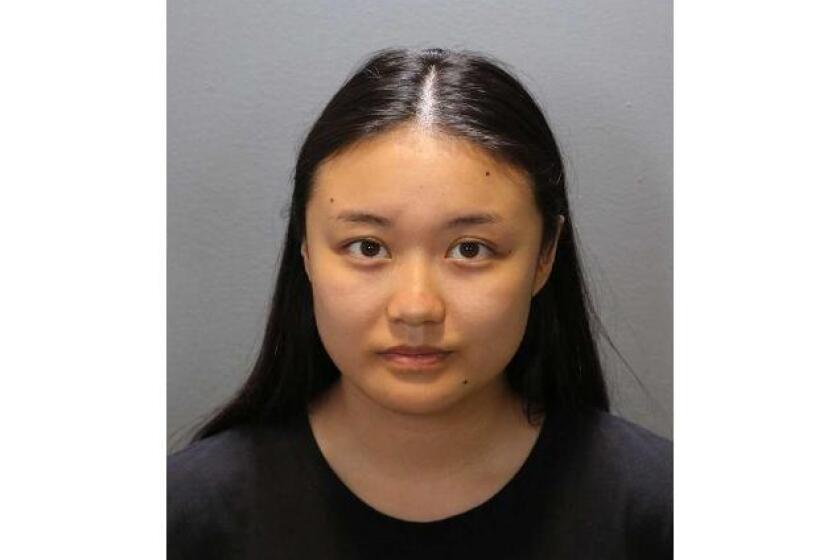Talks Set on Sale of Veterans Cross Site
World War II veteran Ralph McClain was so sure the courts would rule on his side, he etched it in black granite.
He paid $1,050 to have his name, along with those of his sister, five brothers and son carved into one of 1,000 plaques encircling a towering concrete cross atop Mt. Soledad Park that serves as a veterans’ memorial. McClain bought the plaque in 2001 to honor his family’s military service.
But the cross and the land underneath have been part of a 14-year legal battle over whether the city of San Diego violated the constitutional mandate for separation of church and state by owning the land and then selling it to a group committed to keeping the cross at the park.
The U.S. Supreme Court’s refusal last week to hear the city’s appeal ensures that the legal battle will continue. The ruling by the U.S. 9th Circuit of Appeals will stand. It said the city’s 1998 sale of the land to the veterans’ Mt. Soledad Memorial Assn. was unconstitutional.
For the city to comply with the ruling the cross could be taken down -- an unlikely scenario -- or San Diego could resell the land. City Atty. Casey Gwinn said the city probably will sell. Negotiations between the city and the ACLU over how to sell the land are to begin this week.
The next buyer would decide what happens to the cross. City officials said they did not know what would happen to the plaques. A thousand families have paid $600 or more for each of the plaques: The amount depends on the size of the plaque and what is etched on it.
“I thought this could never be. I had faith in my country because I went out and fought for it,” said McClain, a 75-year-old retiree and trustee for the memorial association.
From the memorial, there is a 360-degree view of La Jolla, the San Diego skyline, miles of beaches and the ocean. At one time, the military used transmitters on the site as an early-warning defense system; the Lindberghs used it as a jump-off point for glider flights.
In 1989, Philip Paulson, a Vietnam veteran and atheist, took the city to court to force the dismantling of the cross. Paulson and the American Civil Liberties Union, on his behalf, have argued that the city has endorsed a religion by keeping the cross in a city park.
“The whole point is to take the city out of the business of preferring one religious symbol over another, or over none,” said Jordan Budd, a lawyer for the ACLU of San Diego and Imperial Counties.
Charles Berwanger, an attorney for the memorial association, said the group is not religiously based. But its members are committed to keeping the cross.
“I think a whole lot of those people saw the cross as part of the message of the memorial, not necessarily a Christian message, but a message of solemnity, reverence and honoring veterans,” he said.
Since legal action began, the city has sold the land underneath the cross twice, held a public vote on the issue and tried to appeal the matter to the Supreme Court twice.
The city first sold the land to the veterans group in 1992 without competitive bidding. The court found that sale to be illegal. The city then sold the land to the memorial association in 1998 after a competitive bidding process.
With an offer of $106,000, the association was the highest bidder among five. Two offers came from groups that planned to tear down the cross, three from those that did not.
Last summer, the 9th Circuit Court said that the city had given an unfair advantage to organizations that intended to keep the cross and that those who wanted to dismantle it had been at a disadvantage because they would also have had to pay to remove it.
The memorial association, which erected the 21-ton cross in 1954, estimates it has invested $1 million on the half-acre site. The group installed brass handrails, benches, brick sidewalks and steps leading up to the cross. And it began building walls around the cross to house the granite memorials.
More to Read
Start your day right
Sign up for Essential California for news, features and recommendations from the L.A. Times and beyond in your inbox six days a week.
You may occasionally receive promotional content from the Los Angeles Times.






